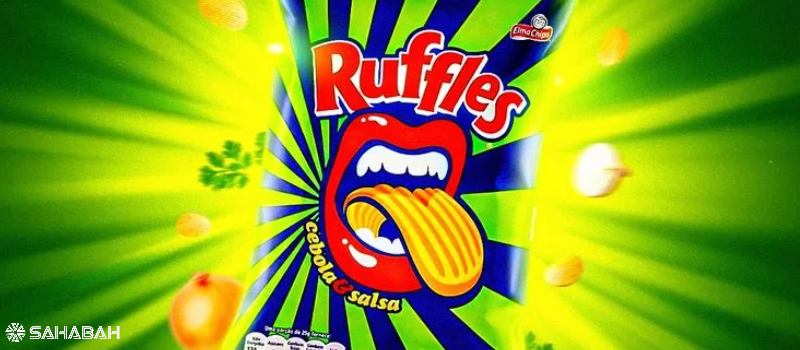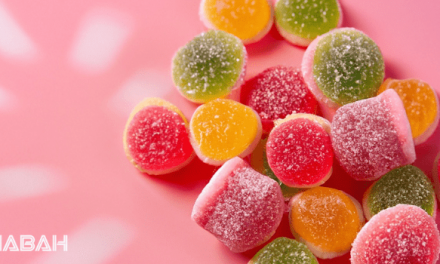Ruffles potato chips are a beloved snack enjoyed by millions worldwide for their crispy texture and bold flavors. From classic salted to tangy all-dressed, the variety of Ruffles is undeniably tempting. However, for Muslim consumers adhering to a halal diet, it’s crucial to know if their favorite snacks align with Islamic dietary laws. This comprehensive guide dives deep into the halal status of Ruffles, exploring ingredients, manufacturing processes, certifications, and consumer experiences. By the end, you’ll have a well-informed understanding to decide if these popular chips are suitable for your halal lifestyle.
What Does “Halal” Mean?
The term “halal” in Arabic means “permissible” or “lawful.” Within the Islamic faith, halal refers to anything permitted under Sharia law, including food and drink. For a food item to be considered halal, it must meet specific guidelines:
- Ingredients: All ingredients must be halal and free from any components derived from haram (forbidden) sources like pork, carrion, blood, or alcohol.
- Preparation: The processing and handling of the food should not involve any contamination with non-halal substances.
- Slaughtering: For meat products, the animal must be slaughtered according to Islamic rites.
Evaluating ingredients is a crucial step in determining if a product is halal. Even seemingly innocuous items like chips could potentially contain non-halal substances like animal-derived enzymes or artificial flavors.
Ruffles Ingredients: Are They Halal?
To assess the halal status of Ruffles potato chips, let’s examine the ingredients used in some of their popular flavors:
Original Ruffles
Ingredients: Potatoes, Vegetable Oil (Sunflower, Corn, and/or Canola Oil), and Salt.
All three ingredients (potatoes, vegetable oil, and salt) are generally considered halal and suitable for a halal diet.
Cheddar & Sour Cream Ruffles
Ingredients: Potatoes, Vegetable Oil (Sunflower, Corn, and/or Canola Oil), Whey, Cheddar Cheese (Cultured Milk, Salt, Enzymes), Whey Protein Concentrate, Skim Milk, Sour Cream (Cultured Cream, Milk Protein Concentrate), Maltodextrin, Salt, Buttermilk, Natural and Artificial Flavors, Monosodium Glutamate, Dextrose, Garlic Powder, Onion Powder, Spices, Citric Acid, Lactic Acid, Artificial Colors (Yellow 5, Yellow 6, Red 40), Disodium Inosinate, and Disodium Guanylate.
While many of these ingredients like potatoes, vegetable oil, and dairy-derived products (whey, cheddar cheese, skim milk, sour cream, buttermilk) are permissible in a halal diet, there are a few potential concerns:
- Natural and Artificial Flavors: These catch-all terms could potentially include non-halal animal-derived ingredients or alcohol-based flavorings.
- Enzymes: The cheddar cheese contains enzymes, which may be derived from non-halal sources like pigs, though the specific source is not listed.
Sour Cream & Onion Ruffles
Ingredients: Potatoes, Vegetable Oil (Sunflower, Corn, and/or Canola Oil), Whey, Skim Milk, Sour Cream (Cultured Cream, Milk Protein Concentrate), Maltodextrin, Salt, Buttermilk, Natural and Artificial Flavors, Monosodium Glutamate, Dextrose, Onion Powder, Spices, Artificial Color (Yellow 6), Lactic Acid, Citric Acid, Disodium Inosinate, and Disodium Guanylate.
Similar to the Cheddar & Sour Cream flavor, the natural and artificial flavors and potential presence of enzymes derived from non-halal sources are areas of concern.
Other Ruffles Flavors
Ruffles offers a wide range of flavors, from All Dressed to Flamin’ Hot, and each variant has a unique ingredient list. While some flavors may be halal-friendly, others could contain haram ingredients or animal-derived components. It’s essential to review the specific ingredients for each flavor before consumption.
Cross-Contamination Concerns
Even if a particular flavor of Ruffles chips doesn’t list any explicit animal products or alcohol-based ingredients on their label, there is still a possibility of cross-contamination during manufacturing processes. Shared equipment and facilities could lead to traces of non-halal substances ending up in halal products.
Ruffles, owned by Frito-Lay (a subsidiary of PepsiCo), has not been certified as halal by major halal certification bodies. While this doesn’t necessarily mean the chips are non-halal, it does introduce uncertainty and requires extra caution from Muslim consumers.
Ruffles and Major Halal Certification Bodies
Reputable halal certification organizations like the Islamic Food and Nutrition Council of America (IFANCA), the Islamic Society of the Two Americas (ISNA), and the Halal Food Authority (HFA) play a crucial role in verifying the halal status of food products. These organizations have strict guidelines and processes for evaluating ingredients, manufacturing facilities, and supply chains to ensure compliance with Islamic laws.
As of now, Ruffles potato chips do not appear to have received halal certification from any major halal certifying bodies. This lack of certification introduces ambiguity and makes it challenging for Muslim consumers to definitively determine the halal status of these chips.
Consumer Reports on Halal Status of Ruffles
In the absence of official halal certification, many Muslim consumers have turned to online forums, social media groups, and personal experiences to discuss the halal status of Ruffles chips. Here are some common perspectives:
- Anecdotal Acceptance: Some Muslim consumers report feeling comfortable consuming Ruffles, particularly the original salted variety, as they do not contain any explicitly listed non-halal ingredients.
- Flavor-Specific Concerns: Certain flavors like Cheddar & Sour Cream and All Dressed raise more concerns due to the potential presence of animal-derived enzymes or flavorings.
- Halal Alternatives: Many consumers recommend opting for certified halal chip brands like Lay’s or Pringles as a safer alternative to Ruffles.
It’s important to note that personal experiences and opinions can vary, and caution is advised when relying solely on anecdotal reports.
Frito-Lay’s Stance on Halal Ruffles
As the parent company of Ruffles, Frito-Lay’s stance on the halal status of their products is worth considering. According to their website, Frito-Lay does not explicitly state whether Ruffles chips are halal or not. However, they do provide the following information:
“Frito-Lay has confirmed that the enzymes used in their products do not consist of enzymes derived from pigs or other non-halal sources.”
While this statement addresses concerns about enzymes derived from pigs, it does not provide a definitive answer about other potential non-halal ingredients or the overall halal status of Ruffles chips.
Furthermore, Frito-Lay acknowledges that their products may contain ingredients derived from non-halal sources and advises Muslim consumers to “check the packaging and ingredients listing carefully, and consult with a knowledgeable local halal authority to make an informed decision.”
Conclusion
Based on the information gathered, it’s challenging to provide a definitive answer on whether Ruffles potato chips can be considered halal or not. While some flavors like the original salted variety may be halal-friendly, concerns arise regarding the potential presence of animal-derived enzymes, artificial flavors, and the risk of cross-contamination during manufacturing.
Ultimately, the decision to consume Ruffles chips as a Muslim consumer will depend on individual interpretation and personal comfort levels. For those seeking absolute certainty, opting for certified halal chip brands or consulting with local Islamic authorities may be the safest approach.
It’s important to be an educated and responsible consumer, carefully reviewing ingredient lists and consulting reputable sources when making decisions about halal food products. By staying informed and making mindful choices, you can ensure your snacking habits align with your faith and values.
Frequently Asked Questions: Is Ruffles Halal?
Ruffles Cheddar and Sour Cream chips are not considered halal as they may contain non-halal ingredients such as animal-derived rennet in the cheddar flavoring.
Are all Ruffles variants considered halal?
Not all Ruffles variants are considered halal. It is important to check the ingredients list and look for halal certification if unsure about the flavoring used.
Does Ruffles specify the halal status of their chips?
Ruffles doesn’t explicitly list the halal status of their chips, so it is recommended to carefully examine the ingredients and contact the manufacturer for more information.
Can I consume Ruffles Sour Cream and Onion chips if looking for halal options?
The halal status of Ruffles Sour Cream and Onion chips may vary depending on the ingredients used in the flavoring, so it is best to verify with the manufacturer or a halal certification authority.
Are there any certified halal potato chips brands available?
Some brands offer certified halal potato chips, such as IlmHub Halal Foods, which provide assurance that the products do not contain any haram ingredients.
What should I be aware of regarding the halal status of flavored chips like Ruffles?
It is essential to check for any haram ingredients in the flavored chips, especially derivatives like animal fats or pork fats that may affect the halal status of the product.





